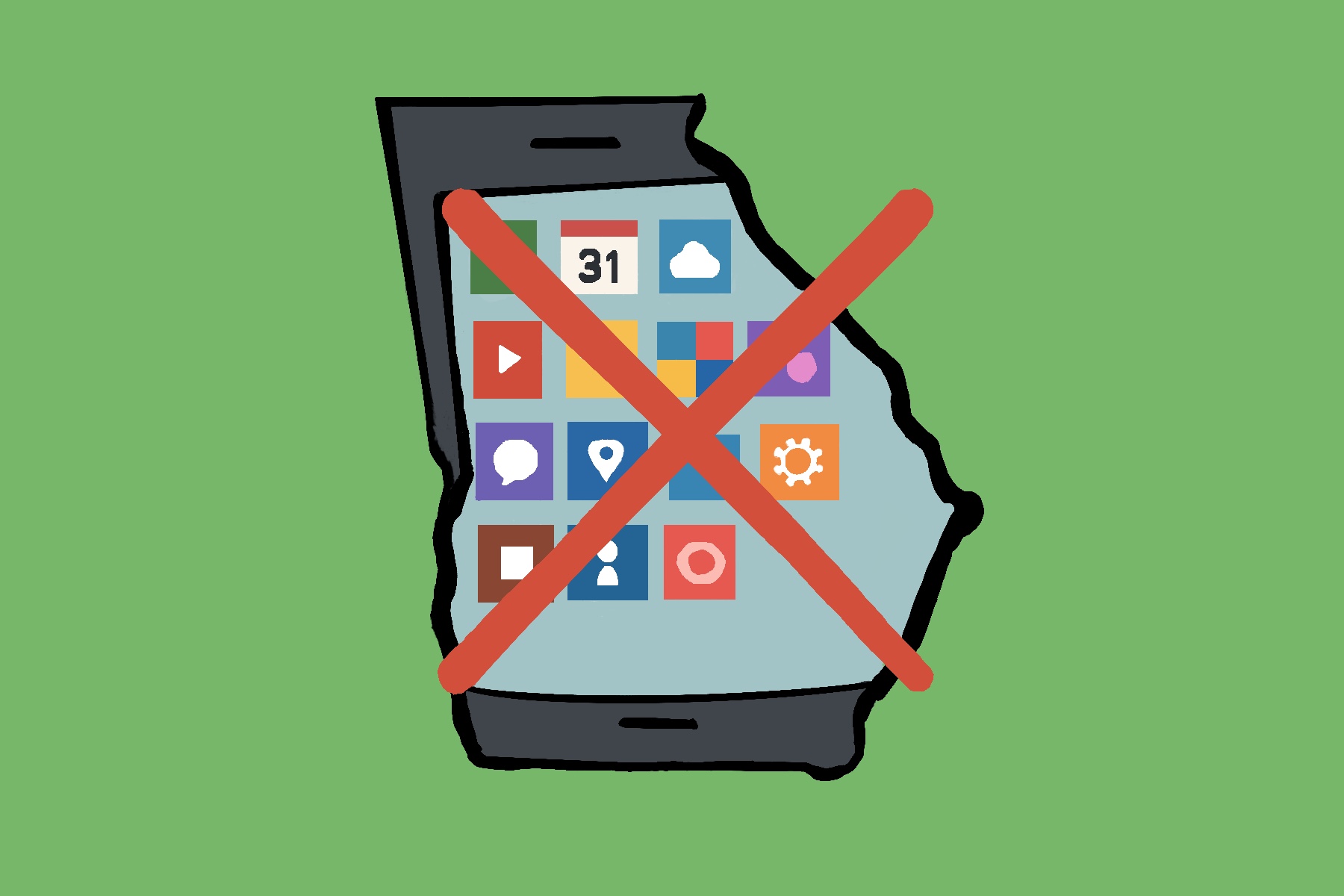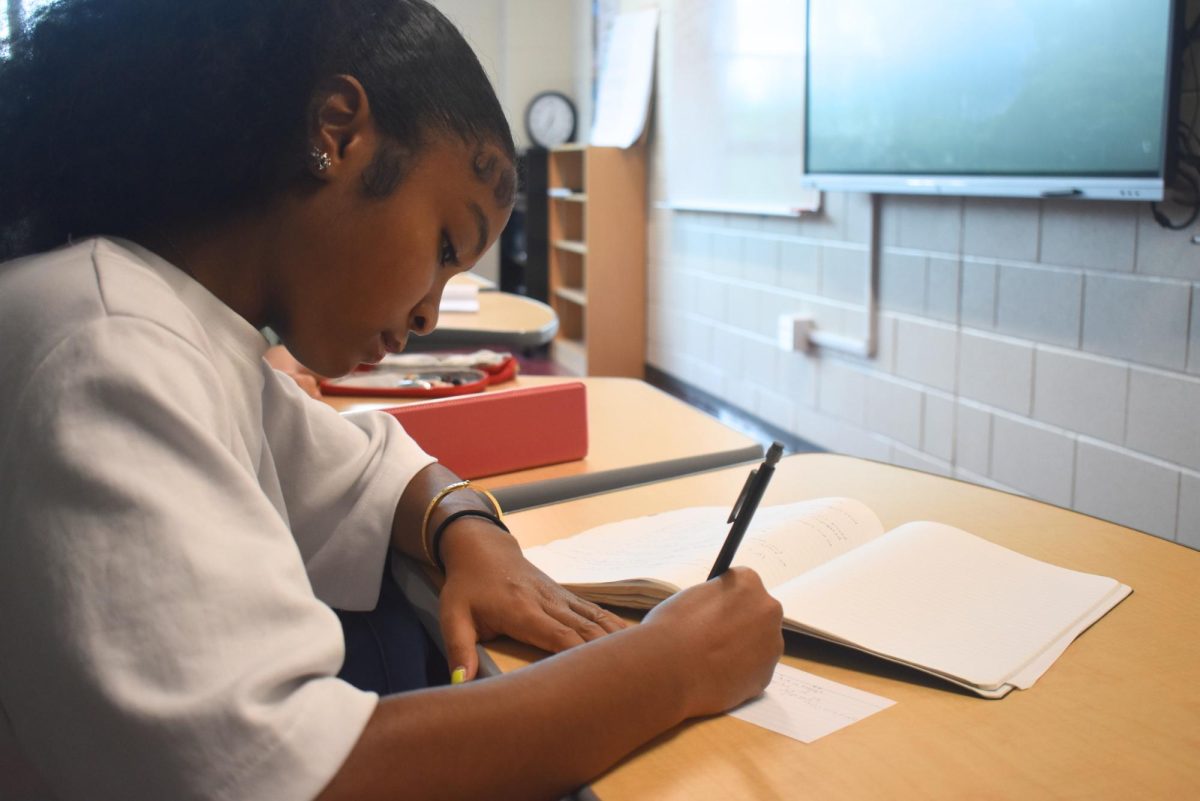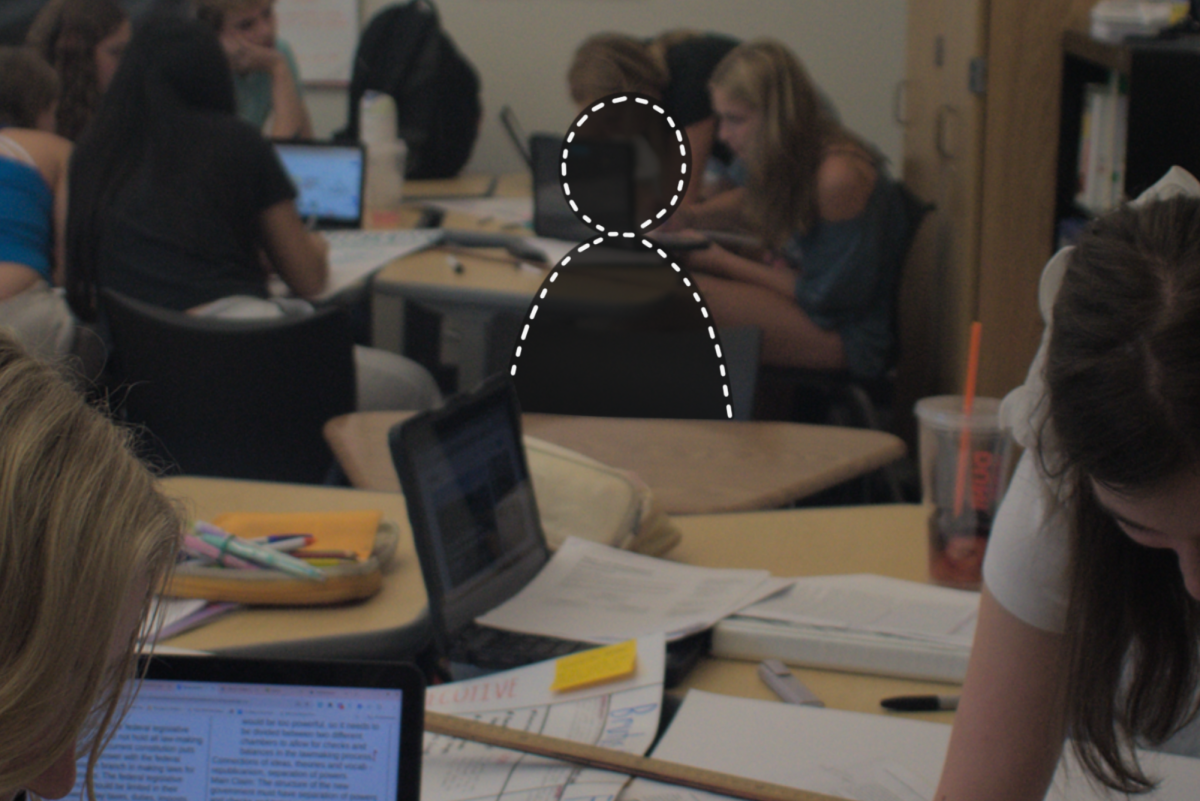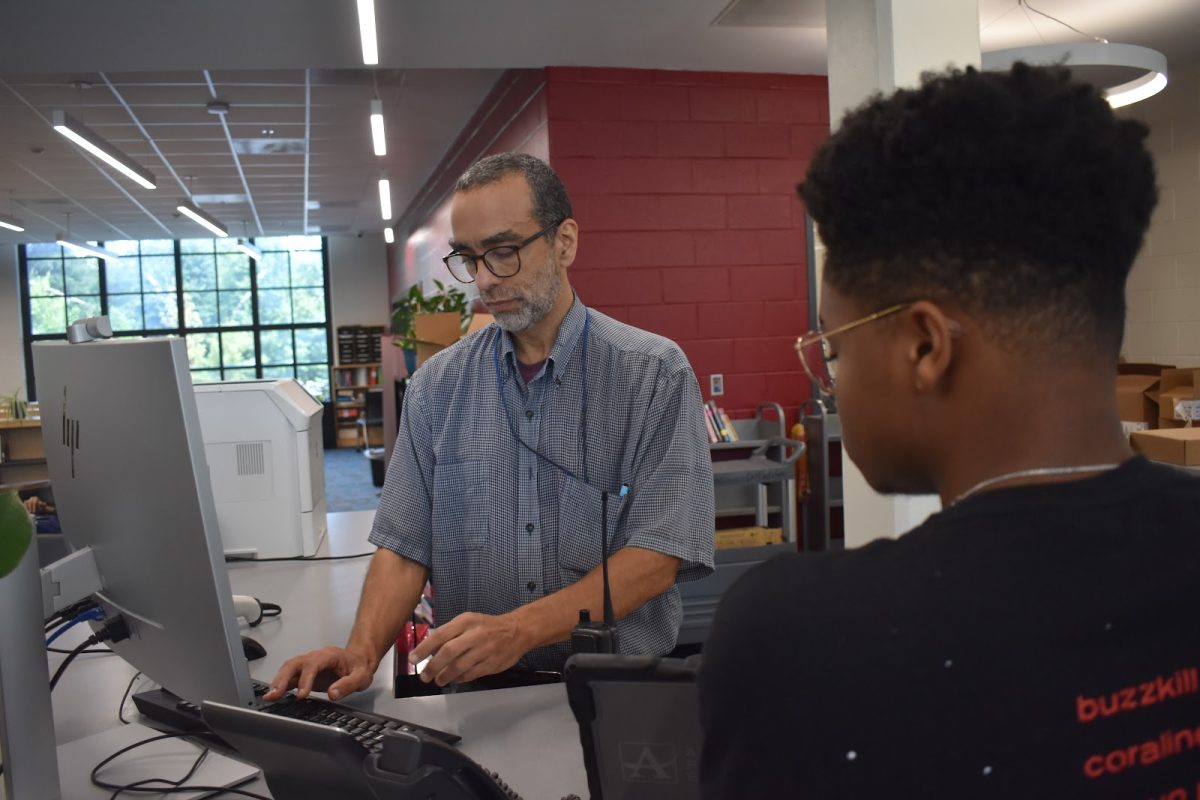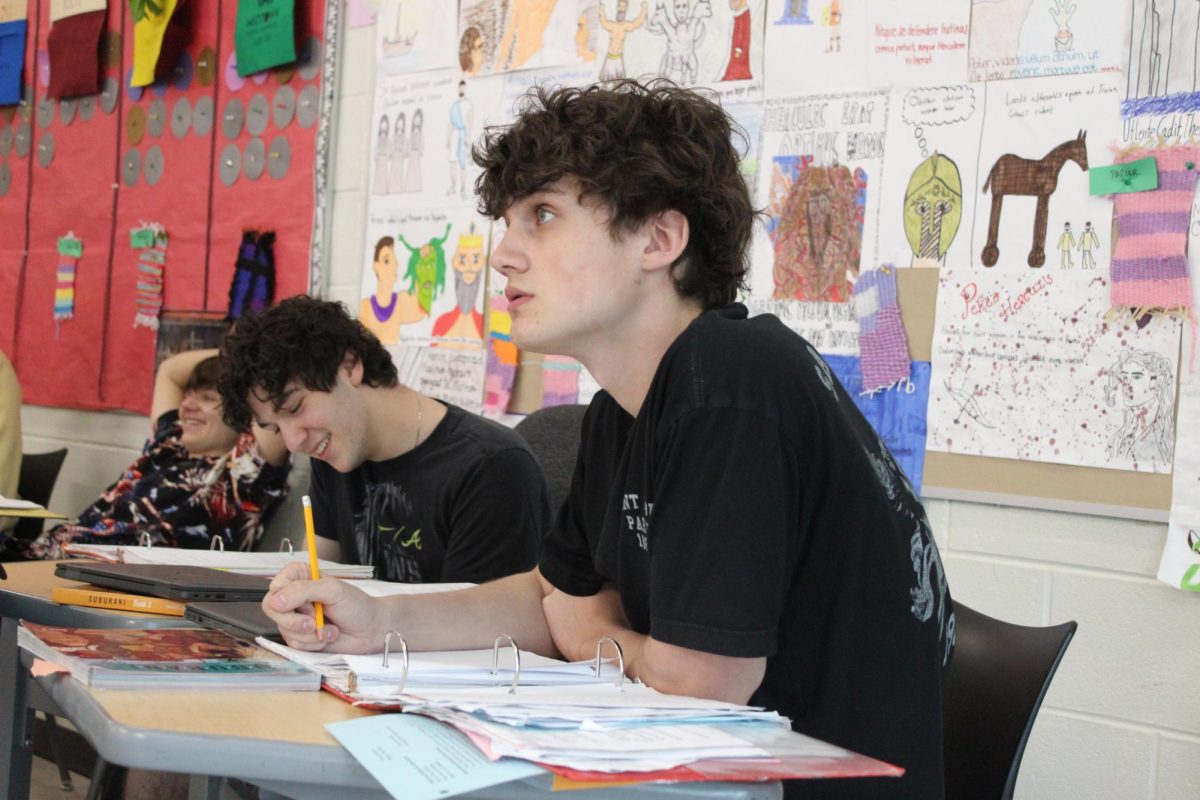Georgia House Bill 340, titled the “Distraction-Free Education Act”, will require public K-8 schools in Georgia to enact policies prohibiting the use of personal electronic devices (PEDs) in school and at school-sponsored events.
The bill passed in the State Senate on March 25, 2025, with a 54-2 vote. David T. Howard Middle School parent Tyler Moody is excited about the bill’s potential to create a distraction-free environment.
“I think eliminating phones will benefit kids’ ability to focus on schoolwork and develop better interpersonal social skills,” Moody said. “Phones are a distraction for anyone, including adults, and kids are still learning and developing physically and emotionally.”
Currently, the Midtown cluster has a no-phone policy for elementary, middle, and high school students. Howard Middle School eighth-grade humanities teacher Wendy Baker said this bill can expand this policy to districts around the state.
“Middle schoolers have enough to worry about with crazy new hormones and chemicals swirling around in their adolescent systems, plus all the high-level skills and tasks we are asking them to perform, to not need the added pressure of social media or online peer problems or any extra distractions,” Baker said. “Additionally, not all schools in our state have administrations that really uphold a cell-free classroom. We are lucky that, in our middle and high school, we do. This evens the playing field for all teachers to teach and kids to learn. No one likes being the ‘phone police,’ so I am guessing this lightens that load for all teachers.”
The bill will force school districts to prohibit PEDs, but allow students to use school-owned devices. Howard Middle School eighth-grader Cole Krugman believes that while he consistently uses devices as a learning tool, he often sees his classmates distracted by PEDs.
“Phones are a distraction tool,” Krugman said. “Most of the time, they are used when kids listen to music or play games. We do have a lot of work on our computers, but the bill banning personal devices shouldn’t really impact that. I think it is good because kids will pay attention more and not be as distracted during lessons, and there will be less cheating, so kids will actually learn.”
Since Midtown implemented the Yondr pouch system, where students lock their PEDs in pouches throughout the school day, Baker has dually seen a decrease in phone usage at Howard Middle School, which she attributes to a large-scale social shift.
“[Phones] are less of a problem this year due to them knowing about the Yondr pouches at Midtown,” Baker said. “The last couple of years before this one, it was really bad. I don’t have to stop teaching to get a kid off their phone as much this year.”
Glynn Middle School in Brunswick, Georgia currently has no cell phone regulation in their school, and the passage of this bill would introduce a ban. Glynn parent Katie Williams allows her daughter to take her phone to school to communicate for transportation.
“Elizabeth, my oldest, has a cell phone and she takes it to school at present,” Williams said. “It’s an old iPhone that doesn’t have very many apps on it. My primary purpose in sending it with her to school is for her to be able to call if extracurriculars happen and she needs a ride. Or if I have a meeting that day, and I need to pick her up instead of her riding the bus.”
The Schoology platform that the Midtown cluster centralizes all communication and coursework through opened a messaging feature this year, where students can message each other and their parents on their school-issued computers. Krugman plays lacrosse and needs to alter his pickup schedule frequently. He said the phone ban may force him to adapt.
“I text my parents sometimes during the day when I have a game or something and need to be picked up early from school,” Krugman said. “A lot of the time, I text them after school, so that wouldn’t be an issue. But I will definitely need to learn how to contact my parents without a phone during school.”
McCleskey Middle School in Cobb County also has no restrictions on cell phone use. McCleskey parent Katu Mehta is a supporter of the bill and he said he mostly needs to contact her kids after the school day ends.
“[The bill] would be really good for the middle school as well as the elementary school,” Mehta said. “It’ll keep them focused. [My daughter] Ariana does take her phone to school. They’re supposed to remain in their locker, so in between classes, we may get a text from her telling us about something at school or something like that, but regardless of whatever she texts, it can wait until the end of day so there’s nothing the bill will really change for us.”
Parents of survivors of the Apalachee school shooting have argued against the bill, specifically raising concerns that children will be unable to contact their parents in times of danger. However, Moody believes student phones do not help in these scenarios.
“The emotional trauma of students experiencing a school shooting, and parents worrying about their kids, is unimaginable to me,” Moody said. “But I don’t think phones are the cause or solution for school shootings. From a safety standpoint, teachers can have phones nearby to dial 911, or classrooms could have landlines installed.”
Mehta agrees with Moody’s sentiments, emphasizing how little use student cell phones pose in times of crisis.
“I don’t see any safety concerns because I think the school can put other means of communication in,” Mehta said. “If there is an issue going on with a kid, if there’s a situation like the one in Apalachee, and if [a student] calls a parent, they can’t stop the shooter.”
Williams believes the bill will need a period of adaptation, but people have gone to school without PEDs before, and they can do it again.
“I grew up in a time when there weren’t widespread cell phones and we managed those kinds of things,” Williams said. “I think that families are likely going to have to plan better, and coaches are going to have to plan better and schools are probably going to have to get used to making telephones available to kids more than they are now for things like ‘mom hasn’t come to pick me up from practice yet,’ so I think it will be a shift. I know it’s impossible [for a high schooler] to imagine that there was a time when we didn’t have cell phones, but we still figured it out.”



